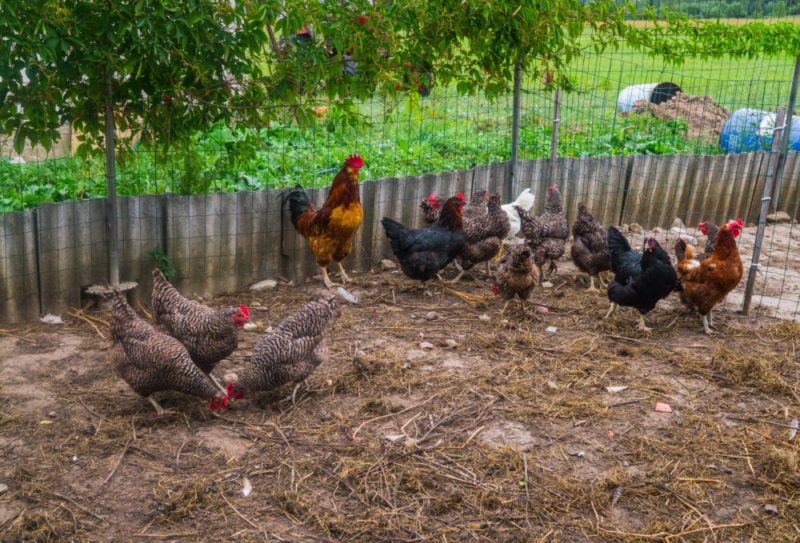7 Ways to Be More Self-Sufficient on a Large Property
It is always preferable to have your money “working” for you. That should mean making investments that can create a decent rate of return. The same approach should be applied to your property: It should work for you by generating extra income and keeping costs down. Of course, that also means you’ll be doing a good portion of the work yourself to be self-sufficient. That is a good thing because there is a great sense of pride that occurs when you “work the land.” Here are some ways to be more self-sufficient on your large property.
Plant a Garden
Self-sufficiency on a large property begins at the dining room table. The more food you grow on your own, the better off you’ll be with regard to eating healthier and lowering grocery bills. Planting a vegetable and herb garden can provide an abundant source of fresh produce. That fresh produce doesn’t just have to be for tonight’s dinner salad. You can also grow a wide variety of vegetables that can be canned or frozen to last far beyond the growing season. A food dehydrator is another good way to preserve some of your produce. When you plant, always think of how you’ll use that food. Take a look at this Beginner’s Guide to Basic Gardening by Handyman Reviewed for great tips on starting and maintaining your garden.
Raise Livestock
A large property can also support the raising of livestock. What has to be considered is the purpose of this livestock. You don’t just want to raise “pets.” Cows, pigs and sheep can all be raised for the by-products that they can generate. The bigger the animal, the more care and space is required. Keeping a cow fed can become a very expensive proposition. It might be a good idea to start small with some backyard chickens. You can enjoy some benefits of a mobile chicken coop if you haven’t mapped out how you are going to use your land yet.
A chicken can produce a single egg a day. The number of chickens you own should reflect the number of eggs that you can consume or sell off. You don’t want anything going to waste.
Compost
One of the big goals for self-sufficiency is to create a zero-waste environment. That means that every type of waste finds a way to be repurposed and reused. Recycling plays a big part in this goal, but it can’t cover all the waste that is created in a home. A compost bin or pile is the perfect spot for all your organic waste. Any cooking scraps can go into the compost pile where it will decompose and be converted into nutrient-rich fertilizer. That same fertilizer can then be used in your garden with the help of a Compost Spreader. That means the food that your food plots will be assisted by the food you’ve already eaten and grown.
Sell the Produce
As you plan your vegetable and herb garden, you should consider growing more than your family needs. The excess can be sold at a vegetable stand that you set up on your property, at a local farmers’ market or directly to restaurants. There will probably be plenty of eateries in your community that are utilizing the “farm to table” concept. You could be that farm. This would mean growing beyond a backyard garden. A few acres of vegetables can provide a very decent return. If you add more chickens, then you could also sell the extra eggs and have those chickens paying for themselves.
Collect Rainwater
Energy and water conservation go hand in hand with being self-sufficient. One of the best ways to save on water is to collect it. You can set up rain barrels at the bottom of your rain gutters. The water collected here can be used to water your garden and provide for your livestock.
Rent the Land
Your land can be rented out in a variety of ways. There might be an opportunity to install a few wind turbines that can create power for a local energy company. A large property can also be set up as a small campground area, which can be rented out through online sites like Airbnb.
If you buy a property with a barn, then you might have the perfect wedding venue. Rustic weddings are very popular. You can renovate the barn with an eye towards utilizing it as a wedding reception venue. Even if you don’t have a barn or any existing structures on your property, metal building kits allow for easy installation—you can even build it yourself.
Reduce Debt
Finally, the road to self-sufficiency begins with lowering your overall debt. All the suggestions listed above can help with that goal by providing you with more sources of income. Some of that income will go back into your business, but a good portion can also be used to pay off the debt. That will be a huge relief.
Adopting self-sufficient practices will also provide important lessons for your children. You will be setting up the next generation of self-sufficient citizens and that is a wonderful legacy.
Equip Supply has you covered for all your gardening needs — check out some of these great offers today!
